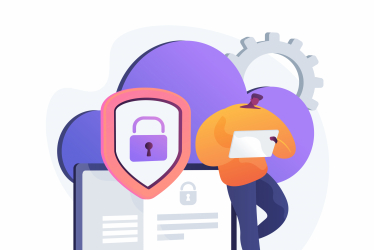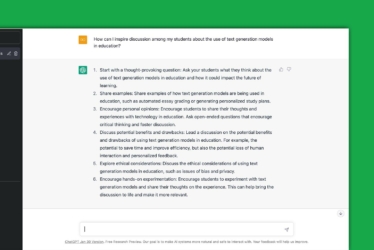Insights
How to Moderate your Online Community
Moderating a community, be it on social media, in forums or a chat, may not sound like a big challenge. Even if the intention is that your community is one of inquiry or practice including motivated participants, will all members play nice? How easy is it to guarantee a healthy, abuse-free online environment?
In this article we discuss some of the pitfalls of community moderation, and our tips to make your community into a success. Communities are seldom successful if they are not maintained, nor do they spontaneously become very active. It takes dedicated attention. You can read how to build an engaged community in our previous article. Below we focus on how to keep your community active and safe through moderation.
November 2020 update: We’ve launched a new course on this topic. Moderate Your Online Community teaches academic and support staff, student assistants and students the fundamentals of community moderation.
Why moderation is important
Before we dive into the moderator’s toolbox, I want to bring some aspects of neuropsychology to your attention. It will explain why and how things online can turn sour very quickly, and thus why moderation is necessary.
The survival mechanism in our brains means that we are attuned to surviving violence, and prioritise negative situations with a set of binary options known as fight or flight. There is no room for learning or creativity when facing a threatening situation. Online this negativity is known as trolling or hating, but no matter the term, the effect is the same. The average person will react to a negative message in an online community by fighting back or leaving the community.
In addition, cyberspace is treated by us as a place that is a wildly unexplored territory, without any social contract (a.k.a. the social rules we acknowledge in real life but not online). This means that rules or mores (social norms) need to be re-established, and made explicit as we lack some visual in-person clues. This helps online civility become the norm and a social contract is created. If we do that, a community will actually exist. This was first described by Howard Rheingold in his article on virtual communities in 1987.
In order to create a creative and positive learning environment, you will want to establish your control over your community with some simple rules of expectation. For instance, in the Leiden University MOOCs we ask participants to:
- Participate
- Collaborate
- Be respectful
- Be academic
- Be safe (& data responsible)
The goal of moderation is to prevent or smooth over negativity in a community, while encouraging participants. This creates a safe learning & creating environment that is vital for the success of your community. This is a role that in education platforms typically belongs to the teacher in small groups, but can also be taken on by a group of volunteers or assistants.
Quick Wins
Moderating a community can be tiresome, frustrating and intensive, however there are a few tricks to make the process go a little more smoothly:
- Lead by example – make sure you have some guidelines for what behaviour you expect from participants and be sure to exhibit this behaviour yourself. You can set the climate of your own community.
- What you give attention grows – do not focus on those disobeying but on those that provide positive examples. Praise rather than condemn. You want positivity to lead your community, not petty complaints.
- Keep calm and drink a cup of tea – we are all human and sometimes you just get angry about (the tone of) something that is written. Help yourself get perspective by standing up and making a cup of tea without posting anything. After 10 minutes your head is clearer and you can attempt a professional reply (and research says warm drinks promote empathy). Never post in anger or haste.
- Give feedback in a sandwich – providing feedback can be a sensitive issue. Make sure you say something nice first to open somebody up for feedback, give your feedback in a clear concise way, and then close with something nice again so members do not end up feeling defensive. Your effective feedback is the filling in the middle of a positivity sandwich.
- Recreate your classroom/workspace – in the way you talk, what topics you address, the clothes you wear, the background of your screen, the encouragement and feedback you give. In everything you do, ask yourself how to create the same atmosphere.
- Data privacy and responsibility – be mindful that learners can be naive about their own data privacy and may overshare (e.g. share a personal email address). Or you might inadvertently ask them to overshare (e.g. by using their camera with their messy household in the background or photographing something in their house). Read more about data responsibility here.
- Create answer templates or a FAQ knowledge base – providing standard replies to questions in the community makes the lives of your moderators so much easier, and it provides a standard.
A few sticky problems
Repeated content
Participants posting similar questions or discussions in different threads can confuse your content architecture. Participants may repeatedly asking the same question if you are not quick enough to answer, or bumping up a thread with only a dot.
Why it is annoying – the participants are not mindful of your time or that of their peers and they lack patience. It is a consumptive habit instead of contributing to the whole.
What you can do – write a personal message to the offenders, then make a general announcement reminding all participants to be purposeful about where they post what. It is not volume but quality that you are looking for and they should trust you to pay attention to all threads even if it may take you a while to address it.
Netiquette: Writing in ALL CAPS and other disruptive formatting
This includes participants writing in bold or in capital letters or violating other requests regarding layout and colour, stating blunt things they would never say in real life, asking things that are easily found in the FAQ, or making insensitive jokes.
Why it is annoying – these are all violations of long established informal internet etiquette or netiquette. In general, these behaviours are considered disrespectful because the participants have not engaged in the customs of the community.
What you can do – this may be from ignorance so write a polite private message to the offender. Include netiquette in your guidelines for expectations.
Copyright & Citation Violations, Illogical Fallacies and other Fake News
Here we mean, participants who copy paste Wikipedia, who cherry pick arguments or only speak from authority. It also includes members who do not offer arguments or sources, or share conspiracy theories.
Why it is annoying – it is not academic, it is intellectual theft or copyright infringement.
What you can do – write a private message to the offenders reminding them of the importance of facts, logic and authentic sources, peer reviewed literature as well as acknowledging intellectual property rights of ideas. Link your community to pages with an explanation of academic and digital skills and mention these in your expectations for behaviour..
Vulgar or inauthentic behaviour: them are fightin’ words
Participants who deliberately post provoking statements, use ad hominem fallacies, share memes that are not ironic or even sarcastic, but only vulgar. Participants who only repeat each other, often in the same wording. Participants who are not genuine but there to enact an agenda.
Why it is annoying – It is trolling and hateful behaviour, provoking damaging negativity in your community and abusing your resources for an agenda or cynical amusement value.
What you can do – implement a troll control plan for prevention, and if they are in your community do not hesitate to bring the hammer down, see below…
Actions have consequences: the hammer comes down
Participants who have ignored your guidelines, and your warnings and private messages asking them to adjust their behaviour.
Why it is annoying – (disruptive) behaviour continues, you feel ignored, and the rest of the community sees different norms then they were following which annoys or frightens them.
What you can do – be clear upfront what the consequences will be if warnings are ignored, then follow up with those consequences. Ultimately you can remove somebody temporarily or permanently from a community if their participation is not conducive to a safe and creative learning environment.
Long term moderating & managing
As your community grows, different roles emerge, as we discussed in our previous article on building an engaged community. This means in the moderation team there is an opportunity to diversify in tasks based on interest and talent, while finding interesting activities to keep the community alive.
The longer a community is maintained the more you should employ human resource management techniques. For instance, you will have to replace moderators as some will eventually leave. More often than not the moderator role is a voluntary one and comes from the pool of participants in the community. A positive, participant-focused community will have better opportunities finding replacement moderators.
Finally, the manager in charge of moderators should consider maintaining professional standards. Periodic skills and value workshops for moderators are a good form of recognition, as well as assuring quality standards are maintained. New moderators learn the ropes from senior ones which reduces trepidation for the task they are about to take on and serve as team bonding as well.
Take a course
We have two courses for online community managers, academic and support staff and anyone else interested in online communities.
Build Your Own Online Community equips teachers, support staff and students with the tools and techniques to build, maintain and engage online communities.
Moderate Your Online Community explores the fundamentals of online community moderation.
Both courses are free, self-guided and hosted on Leiden University’s Articulate Rise platform.


Get in touch with the author

Tanja de Bie
Online Learning Expert
t.de.bie@sea.leidenuniv.nl
Literature
Howard Rheingold – Virtual Communities: exchanging ideas through computer bulletin boards (1987)
Howard, T.W.- Design to Thrive: Social Networks and Online Communities that last ( 2010)
Kim, A.J. – Community Building on the Web : Secret Strategies for Successful Online Communities (2000)
O’Keefe, P. – Managing online forums: everything you need to know to create and run successful community discussion boards (2008)
He also blogs here: http://www.managingcommunities.com/
Salmon, G. (2011). E-moderating: the key to teaching and learning online. Routledge, New York and London. Third Edition.
See website: https://www.gillysalmon.com/
Gilly Salmon on 5 stage model: https://youtu.be/ILCnUgfeuoc
Garrison, D.R., Anderson T, & Archer W. (2000) – Critical inquiry in a text based environment: computer conferencing in higher education. The Internet and Higher Education 2(2-3) 87-105. (Community of Inquiry).
Jered Borup – Community of Inquiry https://youtu.be/273WuFa6Z04




